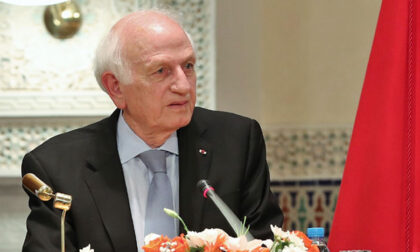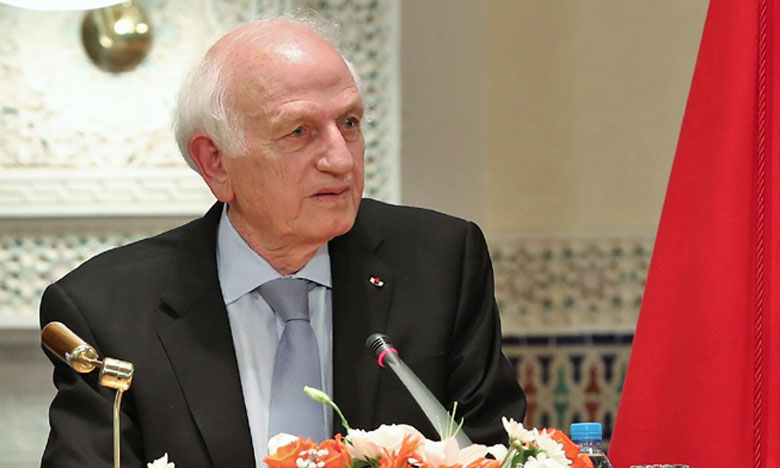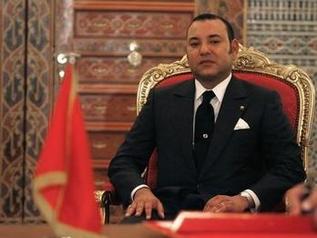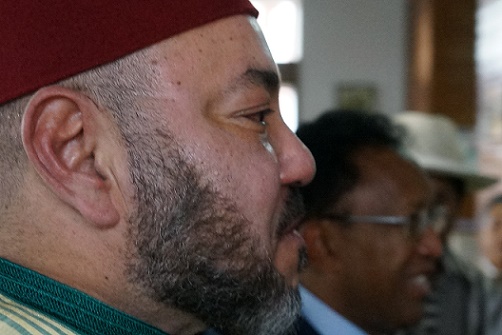 The project to set up “INSANIA”, an Institute for Advanced Humanities in Africa and the Mediterranean, was announced Saturday in Essaouira during the meeting of the Center for Studies and Research on Hebrew Law in Morocco, held in Bayt Dakira.
The project to set up “INSANIA”, an Institute for Advanced Humanities in Africa and the Mediterranean, was announced Saturday in Essaouira during the meeting of the Center for Studies and Research on Hebrew Law in Morocco, held in Bayt Dakira.
The setting up of this institute, the first of its kind in the regions of North and West Africa, “gives all its meaning and its deep legitimacy to the exceptional momentum triggered by the historic visit of His Majesty King Mohammed VI, a few days ago, to this emblematic Space”, said André Azoulay, Royal Advisor and President-Founder of the Essaouira-Mogador Association.
The INSANIA Institute project, which is under construction, was initiated with the assistance of the History and Sociology department of the University of Bordeaux. It will focus its work on Advanced Humanities in partnership with European and African networks already active in this discipline, said Azoulay.
“INSANIA” proposes, at the crossroads of numerous cultural, religious and historical junctions, to pursue a policy of development and dissemination of the humanities and social sciences, placing humanism and its diversity at the heart of its concerns.
The institute, which will host residents, organize in-residence seminars and international study days on the model of institutes of advanced studies, aims to contribute to the study and knowledge of the Human in its cultural and social dimensions, and in relation to its environment, in its unity and its plurality.
The 4th scientific meeting of the Center for Studies and Research on Hebrew Law in Morocco was held in partnership with the Essaouira-Mogador Association and the German Konrad Adenauer Siftung Foundation, under the theme “When Morocco gives meaning to its diversity: the uniqueness of Hebrew law in national law”.
Several themes were debated at the meeting, namely “The Centrality of Tolerance in the Thought & Action of HM the King”; “Uniqueness of the Kingdom through the Culture of Dialogue”; “Legal Reflections on Moroccan Hebrew Law”; “From Human Rights to Economic and Social Rights”; “Rights and Cultures in Muslim Societies: the Moroccan case”; “The Positivity in Standards in the Context of Muslim Africa”; “Rabbinical Principles of Legal Interpretation”; and “The Judeo-Amazigh Oral Tradition, a Unique Cultural Heritage”.
Addressing the gathering, André Azoulay said this scientific meeting is “exceptional in several respects”, as it takes place after the historic visit of King Mohammed VI to Bayt Dakira. “It’s a new page of history that has been written in this House,” he said.
Stressing the importance of the concept of law associated with studies on the place of rabbinical jurisdictions in Morocco, Azoulay also highlighted the “imprescriptible and universal” nature of the values of justice, dignity and freedom, which “do not know no borders, no religions and which combine in the same way and with the same requirements for all.”
“This message, deeply Moroccan, which is that of the DNA of Bayt Dakira, tells us that we must first accept the contradictory debate and not derogate from the universality and the foundations of all these values”, he argued.
The newly refurbished Bayt Dakira or “House of Memory” is dedicated to the historic coexistence of Jewish and Muslim communities in Morocco. It is a vivid testimony of a period when Islam and Judaism had an exceptional closeness, complicity and intimacy.



